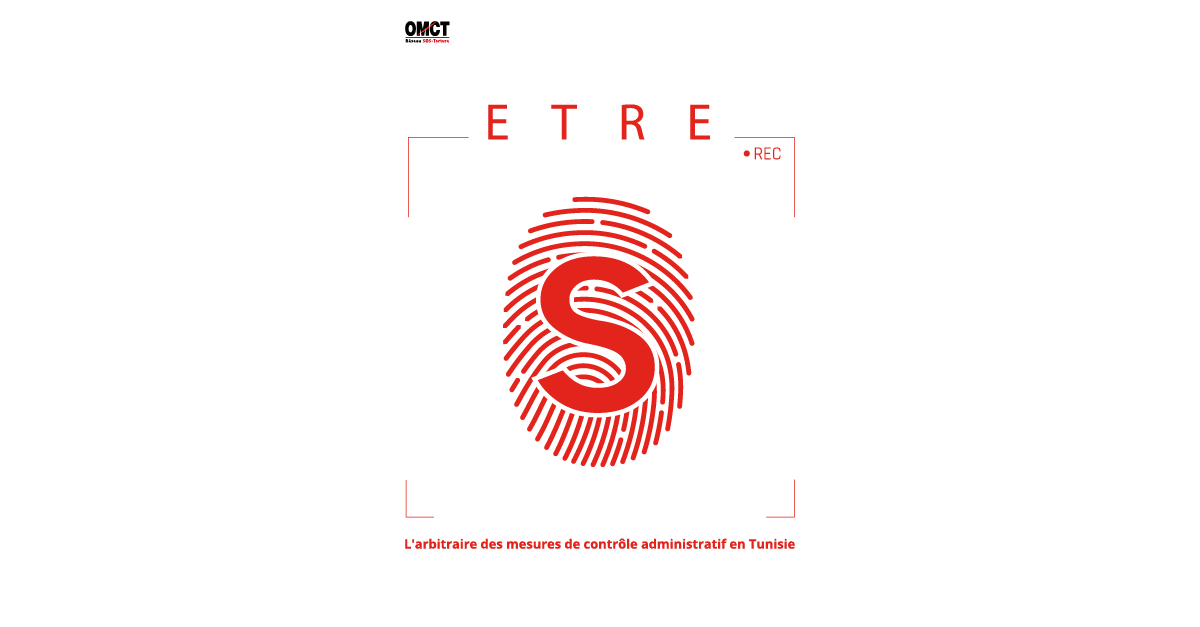Tunis, January 4, 2022 – On the morning of Friday, December 31, 2021, Maitre Nourredine Bhiri, lawyer, former Minister of Justice and senior executive of the Ennahda party, was arrested without a warrant by police officers and taken to a place of secret detention. Mr. Bhiri’s lawyers said they contacted the Ministry of Interior to visit their client but received no response.
According to the Ministry, Mr. Bhiri’s house arrest was legal and in compliance with procedural guarantees. In reality, the fate of Mr. Bhiri is more akin to arbitrary detention.
To be considered legal, a house arrest must be based on a law, must be necessary and proportionate to the objective seeks to fulfill – in this case, the protection of public order – and must be subject to prompt and strict control by an independent judicial authority.
The alleged subpoena imposed on Mr. Bhiri is not based on a law, but rather on a presidential decree issued more than forty years ago. No written notification was provided to Mr. Bhiri specifying the precise reasons for his summons and why this measure is necessary for the protection of public order. Mr. Bhiri was deprived of all contact with his lawyers. The lack of written notification of the summons and the inability to consult with a lawyer constitute severe violations of the procedural guarantees of a person deprived of liberty, as well as a concomitant violation of the right to challenge the legality of the measure before a judicial authority.
Moreover, as Mr. Bhiri’s arrest took place in a closed place from which he could not leave, the arrest indeed amounts to detention under international law and not only a restriction of the freedom of movement. Since the place of detention was kept secret until the detainee’s transfer to hospital, the detention is not only arbitrary but also illegal. Under Tunisian criminal law, such detention can be characterized as a crime of kidnapping and a deprivation of liberty.
According to information provided by the Ministry of Interior, another individual is under house arrest under the same circumstances as Mr. Bhiri. If this person is held within a closed place from which he cannot leave freely, he too is therefore victim of arbitrary detention.
Many other Tunisians are victims of arbitrary house arrest. In most cases, it is not a question of detention but of restriction of the freedom of movement, as the individuals concerned are confined to a particular neighborhood or locality. The measure is no less arbitrary, however, as it still lacks any legal basis. Furthermore, in almost all cases, the persons summoned are not informed of the exact reasons for their summons, which must therefore be presumed unnecessary and disproportionate. They also do not receive written notification, which hinders their right to appeal against the restrictive measures.
House arrest, especially when it takes the form of detention, causes immediate and often irreversible material and psychological damage. The damage is all the more serious when the summons is illegal, as is systematically the case in Tunisia.
In many cases documented by SANAD, the Ministry of Interior uses house arrest to circumvent the judiciary. The Ministry does so either because there is no evidence that the person concerned has committed a criminal offense, or because the person is the subject of a criminal investigation in which the investigating judge refuses to place the person in preventive detention.
According to the Ministry of Interior, Mr. Bhiri is the subject of several criminal investigations. If the investigating judge considers there to be a serious risk that the suspect will flee or destroy evidence, the judge can order his remand in custody in full compliance with the provisions of the Code of Criminal Procedures. This was not the case. It is not within the remit of the Ministry of Interior to overstep the prerogatives of justice.
The OMCT calls on the Tunisian authorities to urgently cease ordering house arrest and other arbitrary administrative control measures, which are devoid of any legal basis and implemented in flagrant violation of international human rights law, in particular
article 9 of the International Covenant on Civil and Political Rights.
The OMCT finally calls once again on the judicial authorities – both the criminal judge and the administrative judge – to play their role as protector of fundamental freedoms.
Press contact
Oussama Bouagila, Advocacy officer OMCT Tunisia, 27 842 197, ob@omct.org
Hélène Legeay, Legal director OMCT Tunisia, SANAD Elhaq, 98 746 566, hl@omct.org


